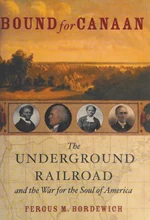Find free American History 1809-1861 books online! Explore the US War of 1812, Manifest Destiny, and the causes of the Civil War. Mexican War 1846-1848. Abolition in the US. United States Manifest Destiny. Early 19th century US history free books.
Check “Media Type” in left column of Internet Archive pages for audio, movie and image files.
U.S. History Book Pages on Century Past
Topics: Explore American History 1809-1861 Books
Discover a rich collection of Early 19th Century US History Free resources, covering the War of 1812, the road to the Civil War, and more. Find numerous free books at Internet Archive (archive.org) spanning from the 1800s to the present, many available for immediate download.
Related Pages on Century Past
Here are CenturyPast.org pages with books or other resources on related subjects. Use the top Menu to look through our 400+ pages.

